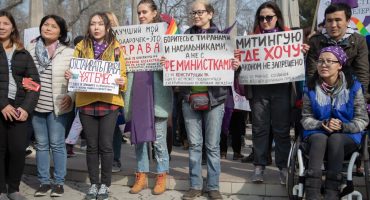Media lawyers told CABAR.asia which laws regulate the work of journalists in Central Asia, and also named the main challenges of the existing rules and regulations regarding the activity of the media in the region.
Uzbekistan: obsolete rules of accreditation are still in force
In Uzbekistan, the activity of the media and journalists is governed by the following rules and regulations:
- Law “On mass media”,
- Law “On protection of professional activity of a journalist”,
- Law “On principles and guarantees of the freedom of information”,
- Law “On informational support”,
- Law “On transparency of public authorities and governing bodies”
- Decree of the cabinet of ministers “On approval of the main rules regulating professional activity of the reporters of the media of foreign states in the territory of the Republic of Uzbekistan”,
- Administrative rules for provision of public services regarding state registration of the media.
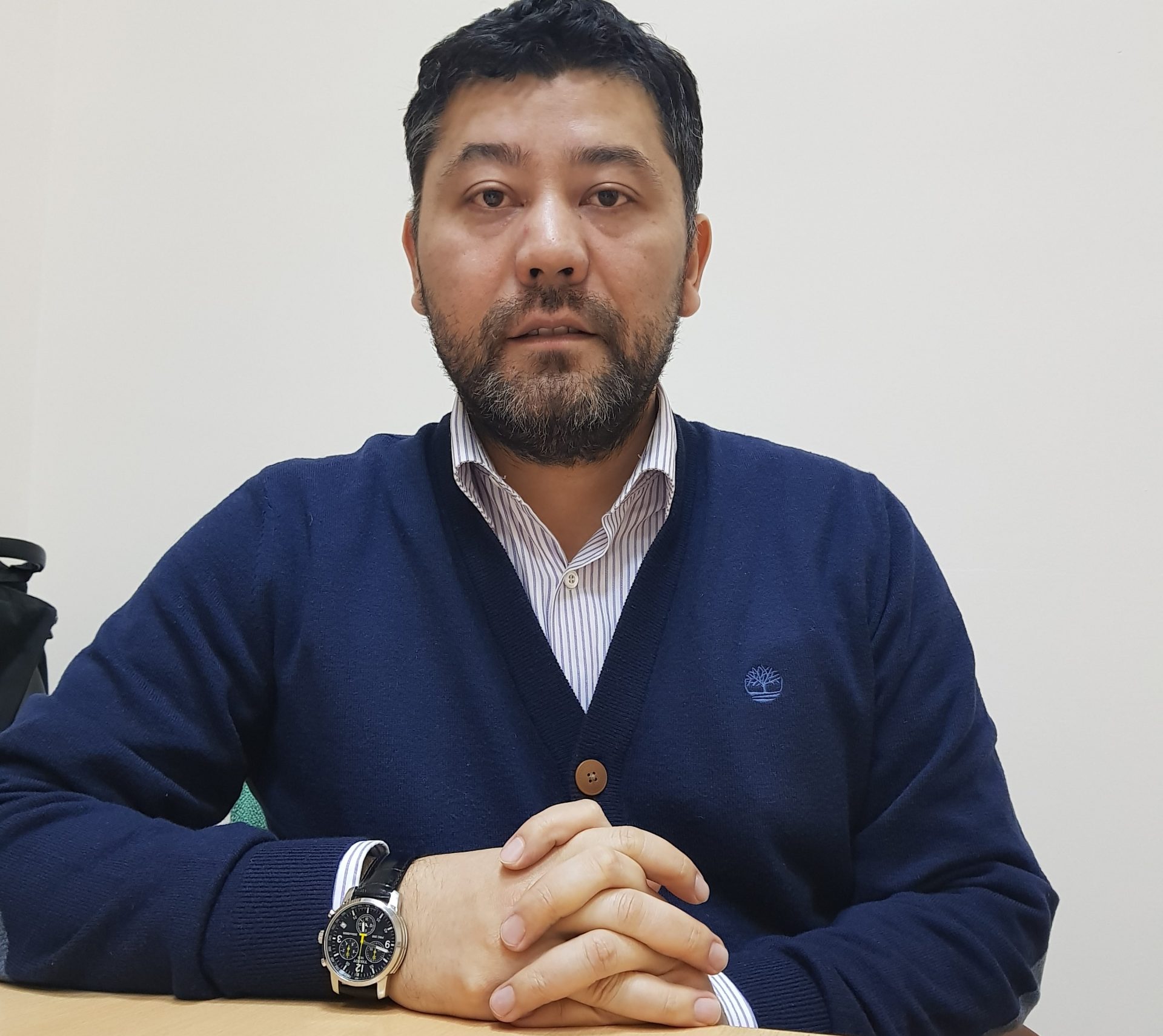
Ilkhom Khamidov
The media lawyer of the consulting company OOO “Perspective Consulting», Ilkhom Khamidov, noted that today’s legal framework of Uzbekistan shows progressive changes in terms of expansion of the freedom of speech, changes that promote development of the media.
“In the last days of 2020, amendments were approved in the Criminal Code of Uzbekistan, which cancel imprisonment for libel and insults. Also, the new article 244 “Distribution of fake information” was introduced. So far, it is unclear how to differentiate between fake information and libel as these two concepts are similar. But this initiative is a positive trend towards mitigation of liability regarding the stated offences and possibly full decriminalisation in future. However, no political statements were made to support this guess,” Khamidov said.
According to him, last summer the Agency of Information and Mass Communications of the presidential administration (AIMC) developed a project of the new draft law “On mass media” that provides for notification procedure of the media activities instead of state registration. However, the stage of the draft law consideration is unknown.
“Also, in early January 2020, AIMC drafted the law “On freedom of access to information, as well as transparent activities of state bodies and other entities,” which means to unite three laws (“On guarantees and freedom of access to information”, “On principles and guarantees of the freedom of information”, “On transparent activities of public authorities and governing bodies”) in the area of ensuring the freedom of access to information into one law. I think it’s a good initiative. I wrote about it in my article before. However, we don’t know at what stage this project is now,” said Ilkhom Khamidov.
See also: Freedom with Disclaimers: How Does the Mass Media of Uzbekistan Work?
According to the expert, the shortcomings of the existing media law in Uzbekistan are obsolete rules of accreditation of journalists.
“Today, when the volume of information and the speed of its exchange are growing every day, the requirements to paper records, very long periods of request processing (30 days after the date of request for accreditation) for accreditation of journalists create discomfort for both journalists and the media,” Khamidov said.
He also noted that the activity of journalists in Uzbekistan is sometimes complicated by improper processing of requests for information from the media and journalists by public bodies.
“Based on the requests of journalists to the Legal clinic for journalists at the Centre for Development of Modern Journalism, journalists often face situations when their requests for information are confused with appeals. The procedure of appeal processing is set forth in a separate law and has nothing to do with the request for information,” said media lawyer.
The term “request for information” was used in Uzbekistan for the first time in the law “On guarantees and the freedom of access to information” dated April 24, 1997. This document entitles everyone to request information either directly or via their lawful representatives. This law defined the form of request, period of its processing for the first time as well. In the 1997 wording, the law specified two forms of request: written and verbal, the time of processing of written request is not more than 30 days after the date of request receipt.
Later on, when the law “On transparent activities of public authorities and governing bodies” was adopted in 2014, the law “On guarantees and the freedom of access to information” was amended to contain the electronic form of request (which is equal to a written request), as well as the time of processing of a written request was reduced to 15 days from the date of receipt.
Kyrgyzstan: self–censorship curbs development
In Kyrgyzstan, the main document regulating activities of the media and journalists is the law “On the mass media”, which was adopted on July 7, 1992 and enacted by order of the Supreme Soviet.
In addition, the republic has the valid laws “On protection of professional activities of journalists” and “On guarantees and the freedom of access to information”. The activities of the media outlets are also regulated by the law “On television and radio broadcasting” adopted in 2008 and the constitutional law of the Kyrgyz Republic “On election of the president and members of the Zhogorku Kenesh of the Kyrgyz Republic” dated July 2, 2011.
According to experts of the Media Policy Institute, the law “On the mass media” has played an unquestionable role in the development of the press and TV and radio broadcasting at the stage of the national legislation development. The document has been convenient for all participants of the “market” for a long time, but today many of its provisions require fundamental changes as there are many discrepancies, gaps and inconsistencies in them.
One of the most serious problems that hinder development of the media scene in the republic is censorship, media lawyers say.
“According to the law, no one may demand that a journalist should get approval of messages and materials in advance, as well as revise the text or remove the material or message from the press or take off the air. But in fact self-censorship remains one of the strongest constraints on journalism,” lawyer of the Media Policy Institute Akmat Alagushev said.
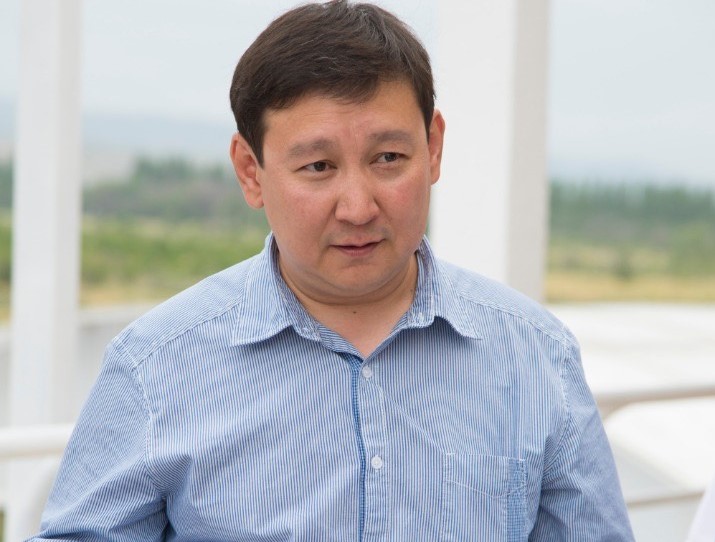
Akmat Alagushev
According to him, the reason is that in terms of the law censorship is deemed as the direct pressure with the purpose of prevention of information dissemination.
“Indirect pressure on the media with the purpose of amending their content must also be deemed as censorship. It may take various forms, including illegal nationalisation or other transfer of media assets, awarding high compensations on cases dealing with the protection of honour, dignity and business reputation, as well as seizure of property. Censorship also refers to applying restrictions to markets where the media outlets work, hindering the dissemination of information that has already become public, threats and use of force against journalists, illegal takeovers of the media outlets,” media lawyer said.
See also: Kyrgyzstan: Freedom of Speech in Multimillion Lawsuits
According to him, the existing law does not contain a chapter dedicated to the notion of censorship that would describe all possible ways of pressure on the media in detail.
In addition, the expert specified the shortcomings of the legal framework related to the media access to information.
“The law “On the mass media” requires updates in the form of specific period of responding to journalists’ requests by public bodies and local governments. The response must be returned no later than five days after the request; or up to two days if the request concerns protection of civil rights and freedoms, environment, accidents, disasters, natural hazards or other emergencies that took place or may take place and threaten the safety of the citizens and the state,” said Akmat Alagushev.
Also, amendments are needed to specify access to information possessed by private organisations.
“We should indicate separately that enterprises, institutions and organisations and their officials must provide the media with access to information of public interest, concerning the rights and freedoms and legal interests of citizens. The period for this category of information owners must be 10 days, be it legal or natural entity,” the lawyer of the Media Policy Institute said.
Moreover, according to Alagushev, guarantees of protection of journalists in their daily activities must be expanded.
“The law specifies cases when the media outlet is not liable for dissemination of fake information. The article is named “Cases of exemption from liability for dissemination of fake information”. It specifies four items that protect the media and journalists in their daily activities. This provision must be expanded by additional cases. One of such cases must be the provision taken from a related law “On television and radio broadcasting”. It reads as follows “a TV and radio organisation and its employees shall not be held liable for the dissemination of fake information if it is a verbatim reproduction of materials distributed by another media outlet or news agency, with reference to them,” the lawyer said.
In addition, in his opinion, the editorial staff, editor-in-chief, and the journalist must be exempted from liability for distribution of information that prejudices other rights and legal interests of citizens (for example, the right to protection of privacy and family privacy), or information that is damaging to the health and development of children, and, finally, for misuse of freedom of the mass media and/or journalists’ rights, if it was the subject of reprinting or copying from other media outlets.
Tajikistan: in a web of conflicts
In Tajikistan, the activity of media organisations and journalists is governed by:
- Article 30 of the constitution of Tajikistan,
- Law “On printed media and other mass media”,
- Law “On television and radio broadcasting”,
- Law “On the right of access to information”.
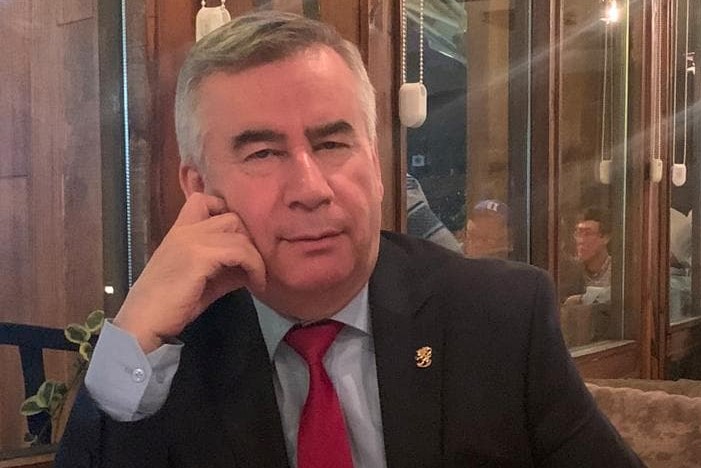
Nuriddin Karshiboev
In general, the republic has more than 10 laws that ensure the freedom of speech and the freedom of information.
According to the chair of the National Association of Independent Media of Tajikistan (NANSMIT), Nuriddin Karshiboev, the existing laws basically comply with international standards.
“However, there are some conflicts or restrictive measures between legal acts. In my opinion, they are the reason for the claims lodged by the members of the UN Human Rights Council. These shortcomings must be removed during the harmonisation of the national legislation until the next UPR report,” the expert said.
According to him, the main problem is the law enforcement practice in the country.
“So far, the rule of law in Tajikistan is just a declarative slogan. The presumption of innocence principle is not observed, and the lack of independent court system leads to the selective use of laws. These shortcomings together with other objective and subjective factors related to difficult media operational environment in the country keep the journalists from carrying out their mission freely,” Nuriddin Karshiboev said.
Kazakhstan: demands become even tougher
The legal framework for the operation of media organisations in Kazakhstan is:
- The constitution,
- Law “On the mass media”,
- Law “On television”,
- Law “On informational support”,
- Law “On communication”,
- Law “On access to information”,
- Provisions on defamation – Civil Code and Administrative Offences Code,
- Provisions of the Criminal and Civil Codes regarding privacy rights and inadmissibility of rousing national, religious hatred and enmity, social hatred and other manifestations of extremism,
- Law “On advertising”,
- Laws on copyright and neighbouring rights.
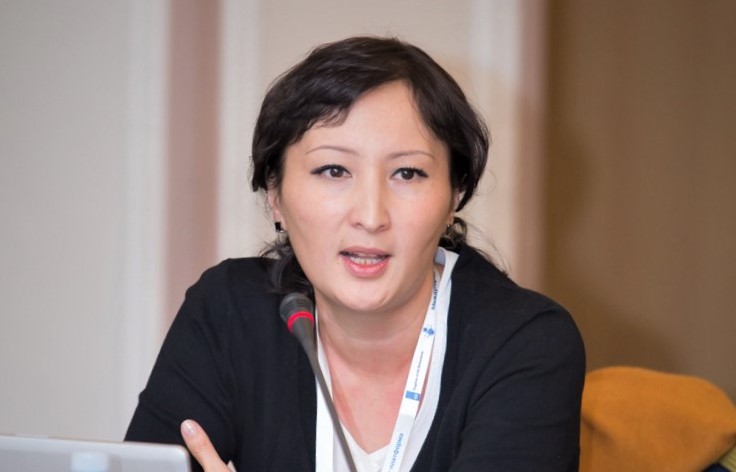
Gulmira Birzhanova
According to the lawyer of Legal Media Centre, Gulmira Birzhanova, despite the fact that the constitution of Kazakhstan guarantees everybody the freedom of speech and artistic freedom, freedom of information, these guarantees are generally inferior to the level specified in the international law.
“The law on the media in the republic contains only restrictive and prohibiting provisions, and mostly does not comply with international standards regarding the freedom of speech. The latest trends are so that the state toughens the law in this sphere even more,” Birzhanova said.
According to the expert, one of few changes for the better in media law is the fact that the president of Kazakhstan Kassym-Zhomart Tokayev signed the law “On amendments and additions to some legislative acts of Kazakhstan regarding the improvement of court enforcement and criminal legislation” that contains the provision on decriminalisation of the defamation article.
See also: Kazakhstan: 88 Convictions for Slander Against Journalists in 10 Years
“Now article 130 of the Criminal Code of Kazakhstan “Defamation” moved from the Criminal to Administrative Code. Moreover, amendments were made to the right to own image. Now the media do not always have to get the consent of a depicted person when preparing, publishing, reproducing and distributing media product,” Birzhanova said.
She emphasised that this rule covers the following cases:
- If a depicted person is present or taking part in entertainment cultural events, socially significant events, sports events, meetings, protests, marches or demonstrations and other public events;
- If the distributed information contains the image of a person and information related to the official activities and (or) public activities of the person, or was published by the person, their legal representative or authorised person in sources that are publicly available;
- If the image of the depicted person is used for protection of the constitutional system, public order, rights and freedoms of a person, health and morals of the people.
However, according to the media lawyer, the law of Kazakhstan has numerous provisions that hinder the development of the freedom of speech and complicate the work of journalists. In particular, a range of articles that provide for the criminal liability for acts committed by distribution of written and verbal texts, as well as by public speaking.
These are the following articles of the criminal code of Kazakhstan:
- “Propaganda or public call for unleashing of aggressive war”,
- “Institution of social, national, generic, racial, class or religious discord”,
- “Dissemination of knowingly false information, creating a danger of violation of public order or infliction of substantial harm to the rights and legal interests of citizens or organisations or the interests of society of the state”,
- “Propaganda or public calls for seizure or retention of power, as well as seizure or retention of power or forcible change of constitutional order of the Republic of Kazakhstan”,
- “Propaganda of terrorism or public calls for commission of an act of terrorism”, etc.
Article 174 of the Criminal Code of Kazakhstan “Institution of social, national, generic, racial, class or religious discord” is the most “successfully” used article. It was used in all the latest high-profile trials relating to online publications.
“The article provides for liability for intentional actions meant to institute social, national, generic, racial, class or religious discord, insult the national honour and dignity, or religious feelings of the citizens, as well as propaganda of exclusivity, superiority or inferiority of citizens on grounds of their relation to religion, class, national, generic or racial belonging, if these actions are committed publicly or with the use of mass media or information and communication networks, as well as by production or distribution of literature or other information media promoting social, national, generic, racial, class or religious discord shall be punished by restriction of liberty for the term of two to seven years or imprisonment for the same term,” Gulmira Birzhanova said.
In fact, according to her, recently article 174 of the Criminal Code of Kazakhstan was amended. In the name of the article the notion “institution” was replaced with “incitement”, and additional sanctions were introduced in addition to imprisonment and restriction of liberty – the penalty ranging from two thousand to seven thousand monthly calculation indexes.
According to Gulmira Birzhanova, the authorities of Kazakhstan need to bring the information legislation in compliance with international standards.
“We need to adopt a new democratic law on the media, and to refer to international principles and standards in our law enforcement practice. Moreover, we need to decriminalise the actions related to the exercise of the right to freedom of opinion and expression in the criminal legislation of Kazakhstan – offence, dissemination of knowingly false information, incitement of discord,” she said.
Main photo: bima.co.uk
If you have found a spelling error, please, notify us by selecting that text and pressing Ctrl+Enter.



